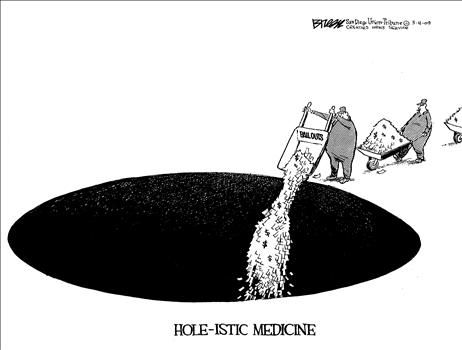Barack Obama says he wants to make reforming health care one of his administration's top priorities. Change in health care is certainly needed. There is a danger, though, that the new president will be unduly influenced by political advocates peddling the same tired myths that have dogged the health care debate since the Clinton years.
These myths are founded on selective data, doubtful sources and faulty science. For anyone with an open mind and a passion for accuracy, they are easily dispelled, says Dr. Roger Stark, a health care policy analyst at Washington Policy Center.
We hear a lot about how terrible the infant mortality rate is in the United States, supposedly the worst in the civilized world. Is this true? Not really:
- U.S. health officials count all live births, while many other countries only count full-term births or infants who live at least 28 days.
- Obviously, premature infants, who are counted in the United States but not in other countries, have a much higher risk of mortality.
- A panel of doctors reviewed the hospital data and found the great majority of these deaths occur at the end of the patient's natural life, when the outcome would have been the same regardless of what hospital staff did or did not do.
- In other countries, these older, desperately ill people often are not even sent to a hospital, dying at home instead, and are not included in national medical statistics.
- A comparable, population-adjusted study in Canada found 200,000 "unnecessary" hospital deaths, even though political activists regularly push Canadian-style health care as the model for the United States.
- Three of the five criteria used to rate nations were biased in a favor of nationalized, single-payer systems, and U.N. officials admit they have an 80 percent uncertainty level in their data.
- Amazingly, none of the five criteria included actual health outcomes, such as cancer or heart attack survival rates.
- The United States tops all countries in favorable health outcomes.
READ MORE
image toon - mny hcare - Hole-istic medicine














No comments:
Post a Comment